Biological Sciences Teaching Resources for Year 4
- Plus Plan
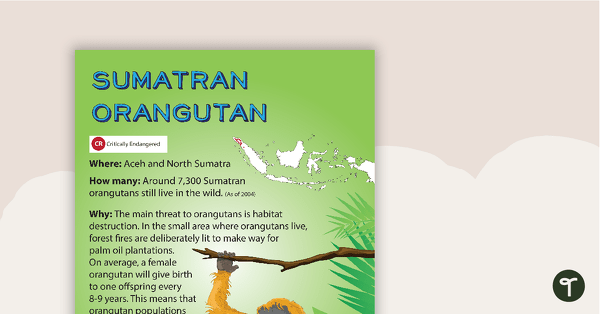
Sumatran Orangutan Endangered Animal Poster
A poster showing information regarding the status of Sumatran orangutans.
- Plus Plan
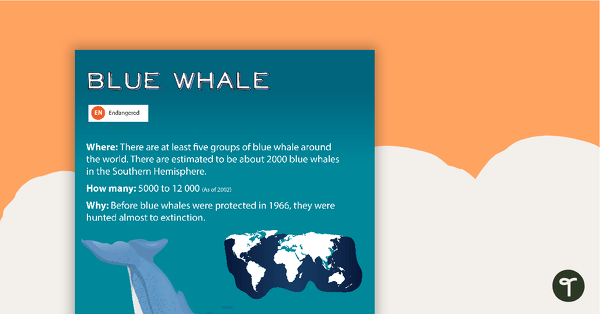
Blue Whale Endangered Animal Poster
A poster showing information regarding the status of blue whales.
- Plus Plan
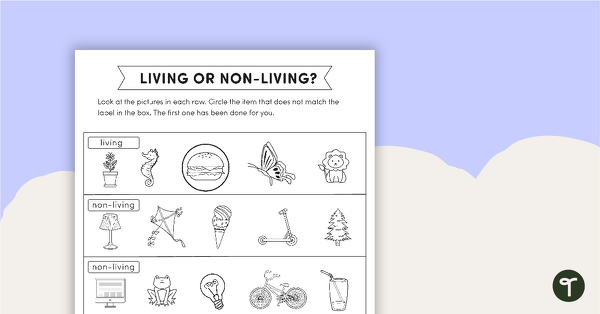
Living or Non-Living? Worksheet
A worksheet that explores living and non-living things.
- Plus Plan
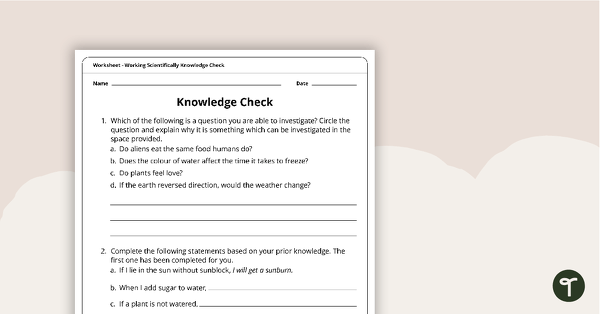
Working Scientifically Knowledge Check Worksheet
A worksheet used to check the students' knowledge of working scientifically.
- Plus Plan
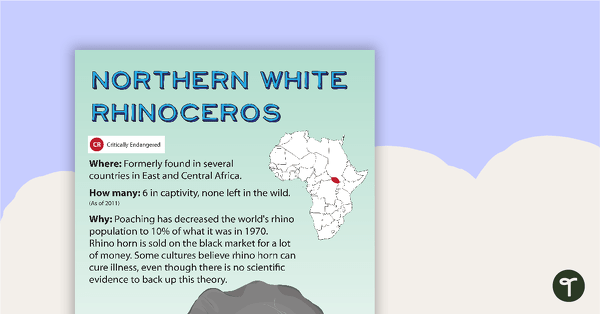
Northern White Rhinoceros Endangered Animal Poster
A poster showing information regarding the status of the northern white rhinoceros.
- Plus Plan
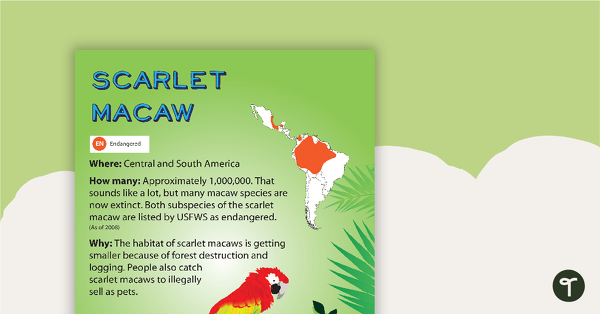
Scarlet Macaw Endangered Animal Poster
A poster showing information regarding the status of scarlet macaws.
- Plus Plan
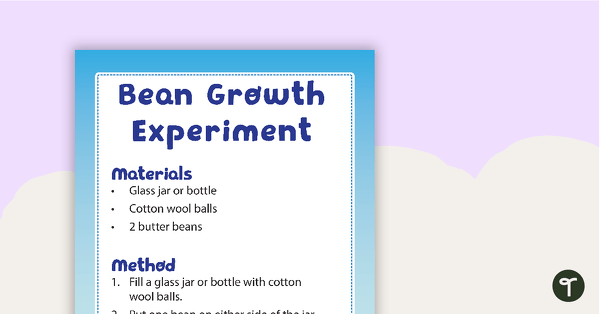
Bean Growth Experiment
An experiment for students to observe the growth and change of a plant.
- Plus Plan
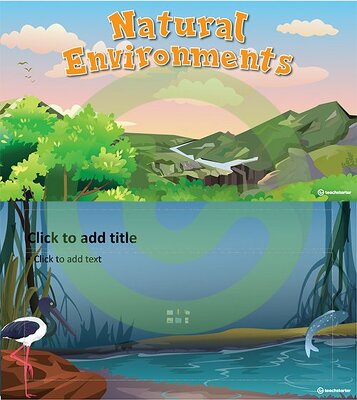
Natural Environments - PowerPoint
A Natural Environments themed PowerPoint to add some colour and design to your classroom PowerPoint presentations.
- Plus Plan
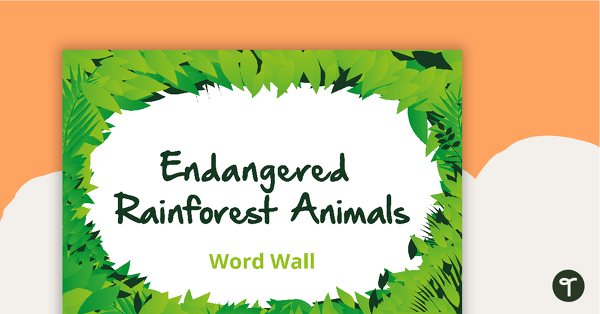
Endangered Animals Word Wall Vocabulary - Rainforest
Forty-two endangered species related vocabulary cards for a word wall.
- Plus Plan
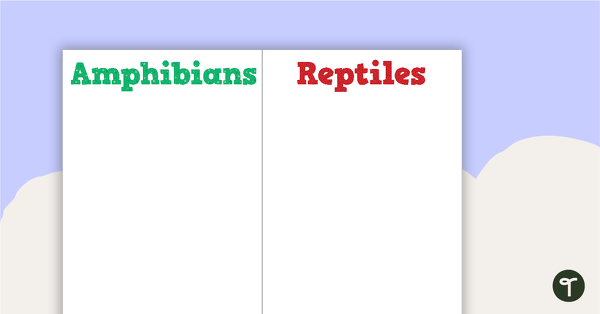
Animal Sort (Tetrapods)
Teach your students the difference between amphibians, reptiles, mammals and birds with this interactive game.
- Plus Plan
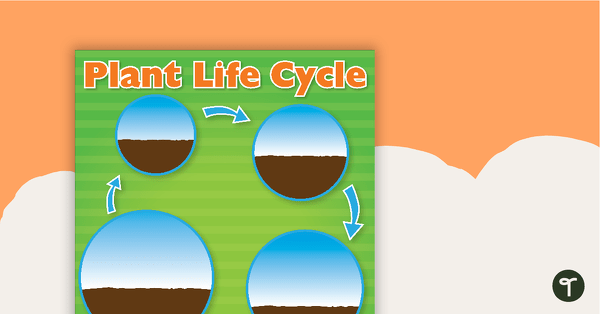
Plant Life Cycle Sort
Help your students concrete their understanding of the plant life cycle with this interactive game.
- Plus Plan
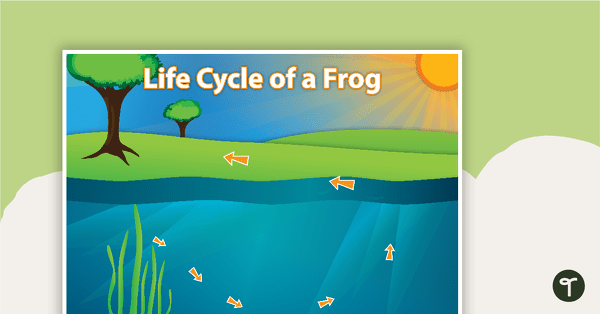
Frog Life Cycle Sort
Help your students concrete their understanding of the frog life cycle with this interactive game.
- Plus Plan
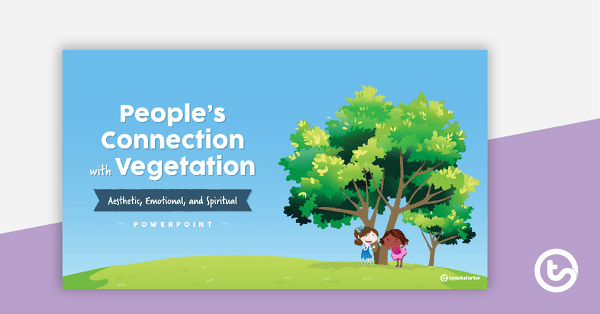
People's Connection with Vegetation
A 17 slide editable PowerPoint template exploring people's connection with vegetation.
- Plus Plan
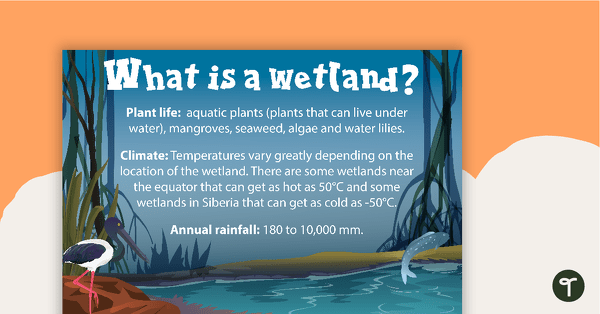
What is a Wetland? Poster
A poster with information about the plant life, climate and annual rainfall that characterise a wetland environment.
- Plus Plan
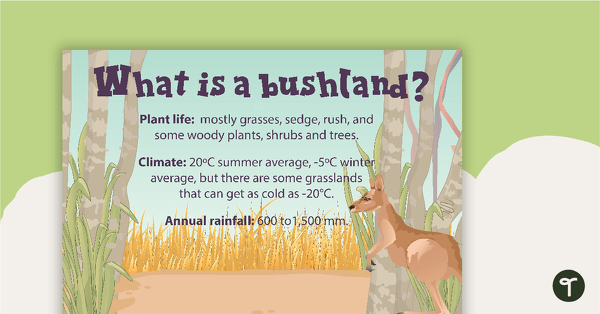
What is a Bushland? Poster
A poster with information about the plant life, climate and annual rainfall that characterise a bushland environment.
- Plus Plan
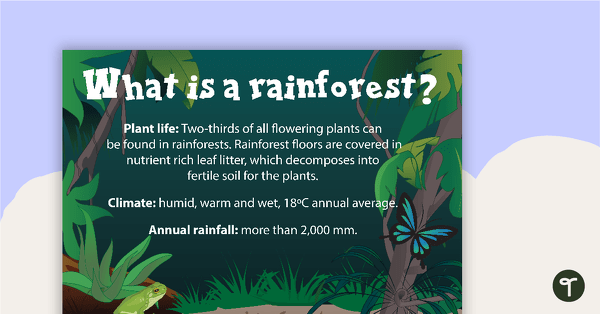
What is a Rainforest? Poster
A poster with information about the plant life, climate and annual rainfall that characterise a rainforest environment.
- Plus Plan
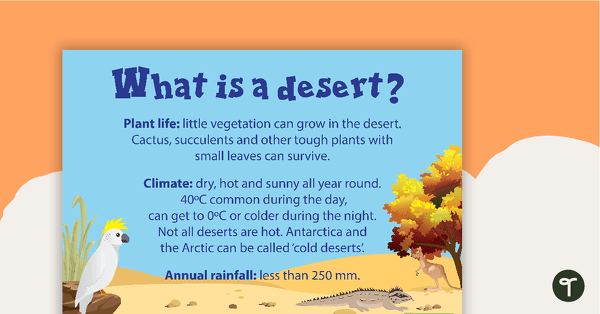
What is a Desert? Poster
A poster with information about the plant life, climate and annual rainfall that characterise a desert environment.
- Plus Plan
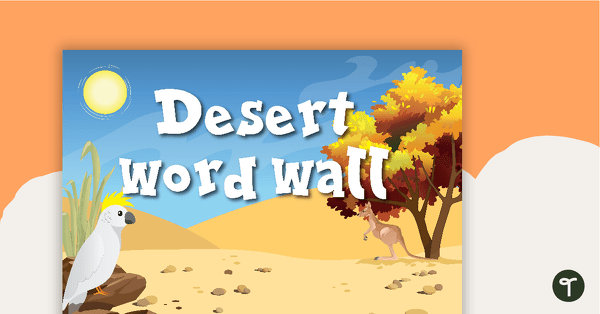
Desert Word Wall Vocabulary
A set of desert related vocabulary word wall cards.
- Plus Plan
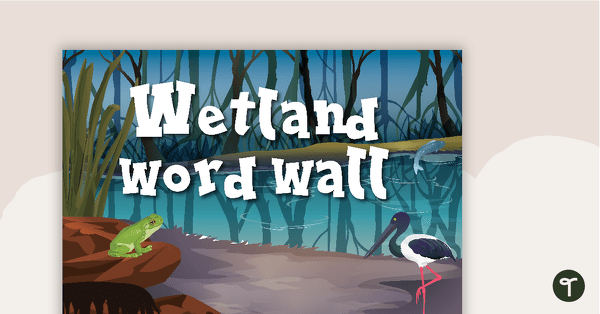
Wetland Word Wall Vocabulary
A set of wetland related vocabulary word wall cards.
- Plus Plan
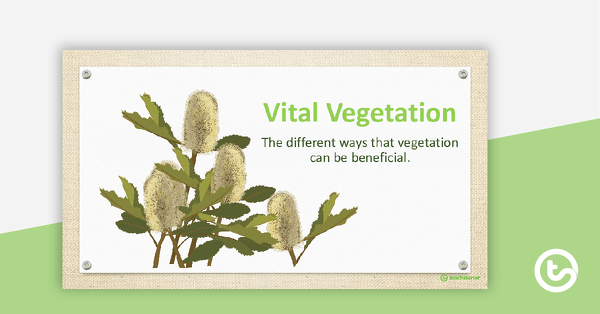
Vital Vegetation PowerPoint
A 15 slide editable PowerPoint template exploring the different ways that vegetation can be beneficial.
- Plus Plan
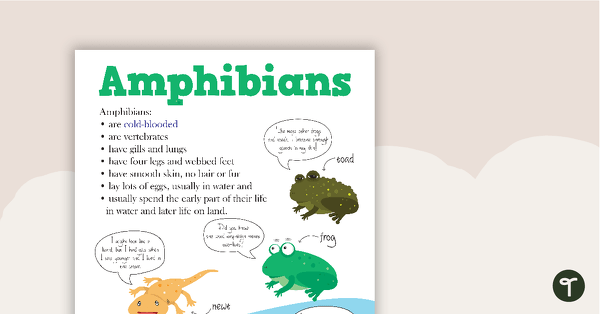
Animal Classification Posters – All
A set of 5 posters featuring basic animal classifications.
- Plus Plan
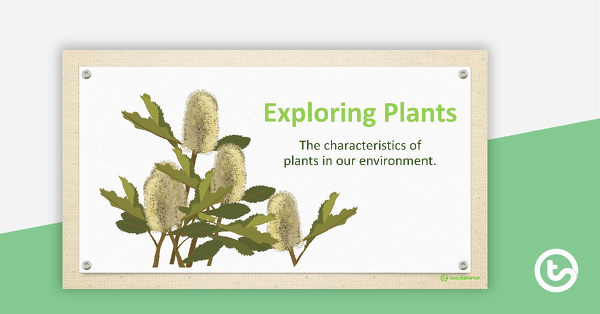
Exploring Plants PowerPoint
A 14 slide editable PowerPoint template exploring the characteristics of plants in our environment.
- Plus Plan
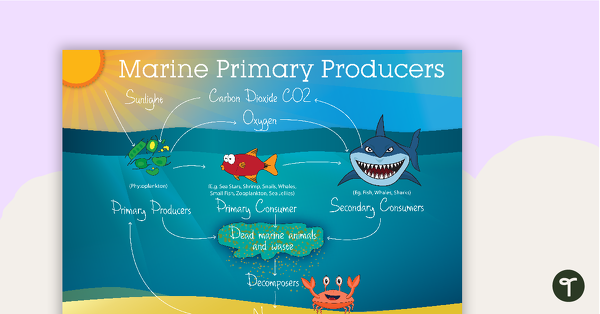
Marine Primary Producers
Use this poster to demonstrate the role of primary producers in the marine ecosystem food chain.
- Plus Plan
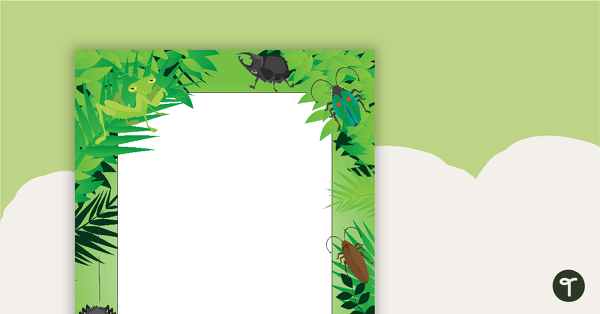
Minibeasts Insects & Bugs Page Border
A page border with bugs.
- Plus Plan
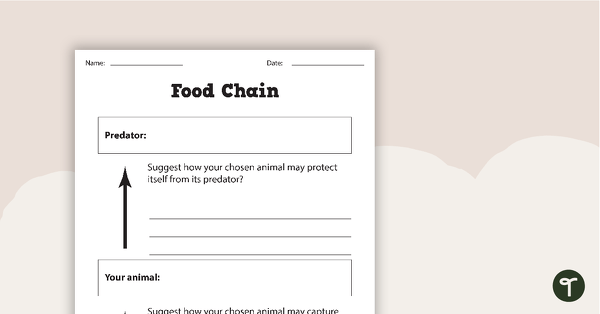
Basic Food Chain Worksheet
A basic food chain worksheet for your students to complete.
- Plus Plan
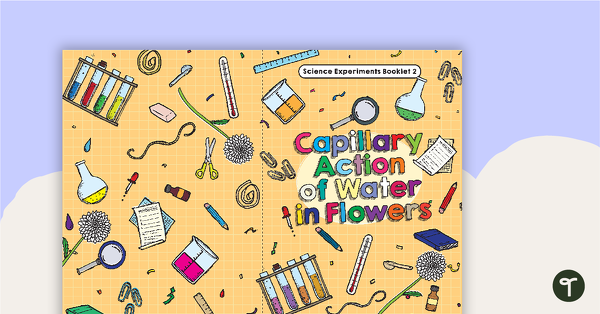
Capillary Action of Water in Flowers - Science Experiment Booklet
A fun science experiment involving capillary action and biology.
- Plus Plan
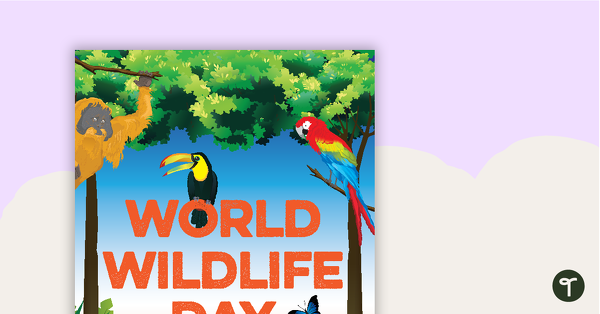
World Wildlife Day Poster
A poster to display in the classroom for World Wildlife Day.
- Plus Plan
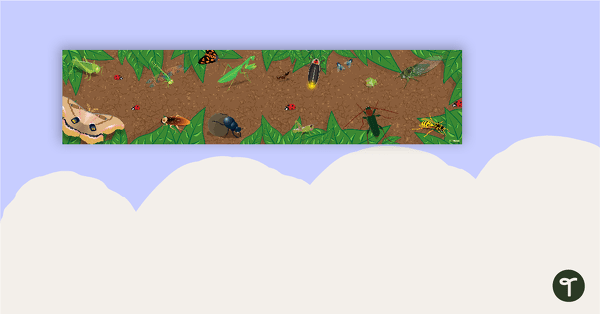
Minibeasts - Banner
A 3-page banner to use on your 'Minibeasts' display board.
- Plus Plan
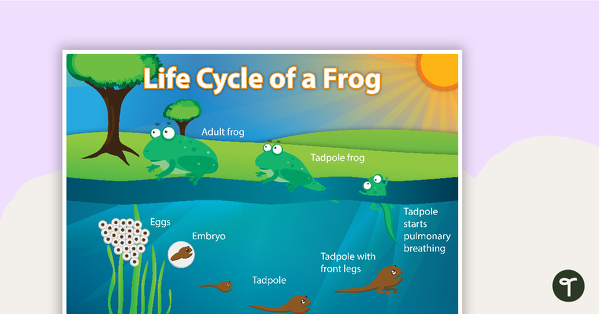
Life Cycle of a Frog
A poster showing the life cycle of a frog.
- Plus Plan
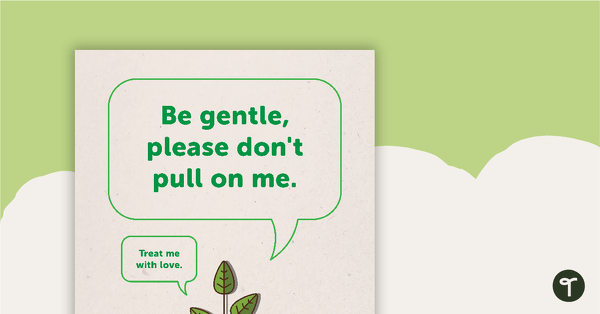
Class Garden Posters
A series of posters that remind students how to properly care for your class garden.
- Plus Plan
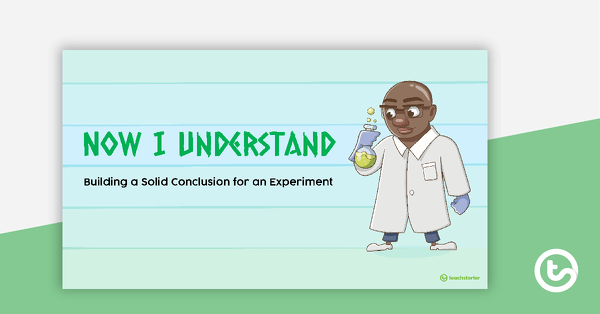
Now I Understand PowerPoint - Building a Solid Conclusion for an Experiment
An educational teaching presentation introducing the students to the R.E.R.U.N. method for writing a scientific conclusion.
- Plus Plan
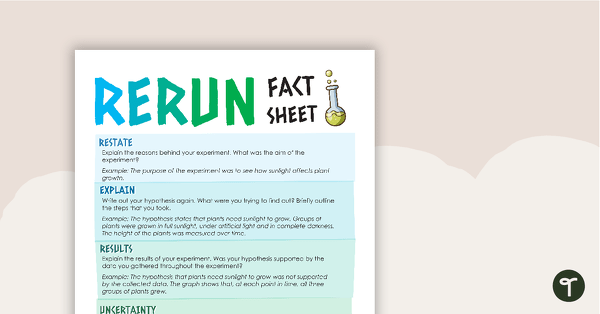
R.E.R.U.N. - Writing a Scientific Conclusion Fact Sheet
An educational fact sheet introducing the students to the R.E.R.U.N. method for writing a scientific conclusion.